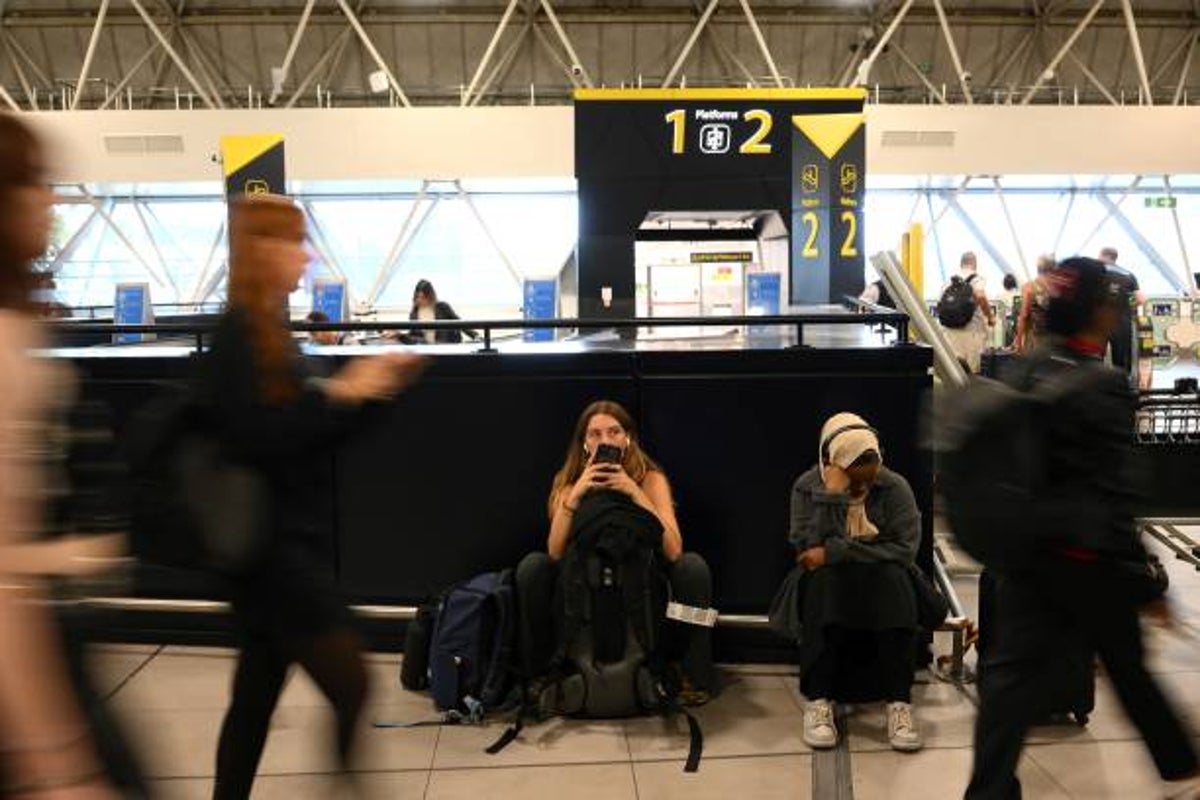
Air traffic control engineers “were at home watching morning television” on bank holiday Monday when the Nats IT system failed: that was the accusation from Ryanair boss Michael O’Leary during a Commons transport select committee hearing on Wednesday.
Martin Rolfe, chief executive of Nats, rejected the claim, saying: “We are a very serious organisation. That would never be the way that we would operate.”
Both CEOs were questioned by MPs at a special session of the committee about the bank holiday systems failure.
The main and back-up computer systems that normally assist air traffic controllers failed around 8.30am on the morning of 28 August 2023. The cause was later found to be a “rogue” flight plan for a French aircraft flying from Los Angeles to Paris, which contained duplicate “waypoints”.
Nats engineers solved the problem about eight hours later. For much of that time, air traffic controllers were obliged to revert to manual handling – reducing the capacity of UK airspace by 85 per cent.
The failures led to more than 2,000 flight cancellations, affecting over 300,000 passengers.
Tim Alderslade, chief executive of the industry body Airlines UK, condemned the delay between the initial failure and when carriers were alerted shortly after 11am. He said that with more notice, airlines could have put emergency procedures in place much earlier. “There was a three-hour window wasted,” he said.
Mr O’Leary described the Nats boss as “vastly overpaid and incompetent” and said Mr Rolfe “should resign or be sacked” after the incident.
“Like most airlines we didn’t find out from Nats, we found out from Eurocontrol shortly after 11am,” he said. “The numpties at Nats didn’t tell us. We had to find out from someone else that they’d crashed their system.”
Mr Rolfe, 51, is on a £1.3m package, including a bonus of £280,000.
Nats said the standard procedure was for Eurocontrol, which oversees air traffic control across Europe, to communicate with airlines.
Sophie Dekkers, chief commercial officer of easyJet, said: “The first time we heard from Nats was a letter the following day.”
In total, her airline had cancelled around 600 flights. That is thought to have affected more than 100,000 passengers. She said 30,000 passengers had been re-routed by another carrier or on other forms of transport.
Eurostar laid on extra trains between Paris and London in the days following the air traffic control shutdown to help UK-bound passengers, with airlines footing the bill for rail tickets.
Both Ryanair and easyJet are thought to have incurred around £15m each in costs for hotels, meals and re-routing passengers.
Jonathan Hinkles, chief executive of Loganair, said airlines were “insurers of last resort” because of the current regime of passengers’ rights.
“If you buy a new washing machine, you have the choice to buy extended warranty,” he said.
“If you are insuring a car, you can choose between fully comprehensive. Every single air ticket that is sold comes with an extended warranty and fully comprehensive insurance.”
Mr Rolfe was questioned immediately afterwards by MPs. He told the committee: “I absolutely understand the frustration of the airlines.”
The shutdown was triggered, he said, despite development work “trying to predict as many obscure circumstances as you can”.
Within 20 seconds of the main system shutting down, the back-up did the same.
The back-up system had taken over “on four occasions over the last five years” without an issue, Mr Rolfe said.
He added: “In the event of something happening that is inexplicable, it is handed on to humans. We’ve put in a number of fixes to ensure it can’t happen again.”
While charges at Nats had increased due to dwindling traffic during Covid, Alistair Borthwick – chief financial officer at Nats – said that since 2002 costs have reduced by 38 per cent in real terms.
Nats is regulated by the Civil Aviation Authority (CAA) – its chief executive, Rob Bishton, described the Nats system failure as “a rare and very improbable event” that had had “huge impacts with people who were travelling”.
He said Nats had been fined £420,000 in 2016 and £240,000 in 2018 for shortcomings in the service provided, but said the effect of penalties could be to push up air traffic control charges for airlines, and ultimately passengers.
Mr Bishton also complimented both sides in the row. He said: “The airlines’ response during the incident was in many cases above and beyond what we would expect as a regulator.”
Later, he added: “I believe Nats has been very open and transparent.”
The CAA has launched its own investigation into the failure.







